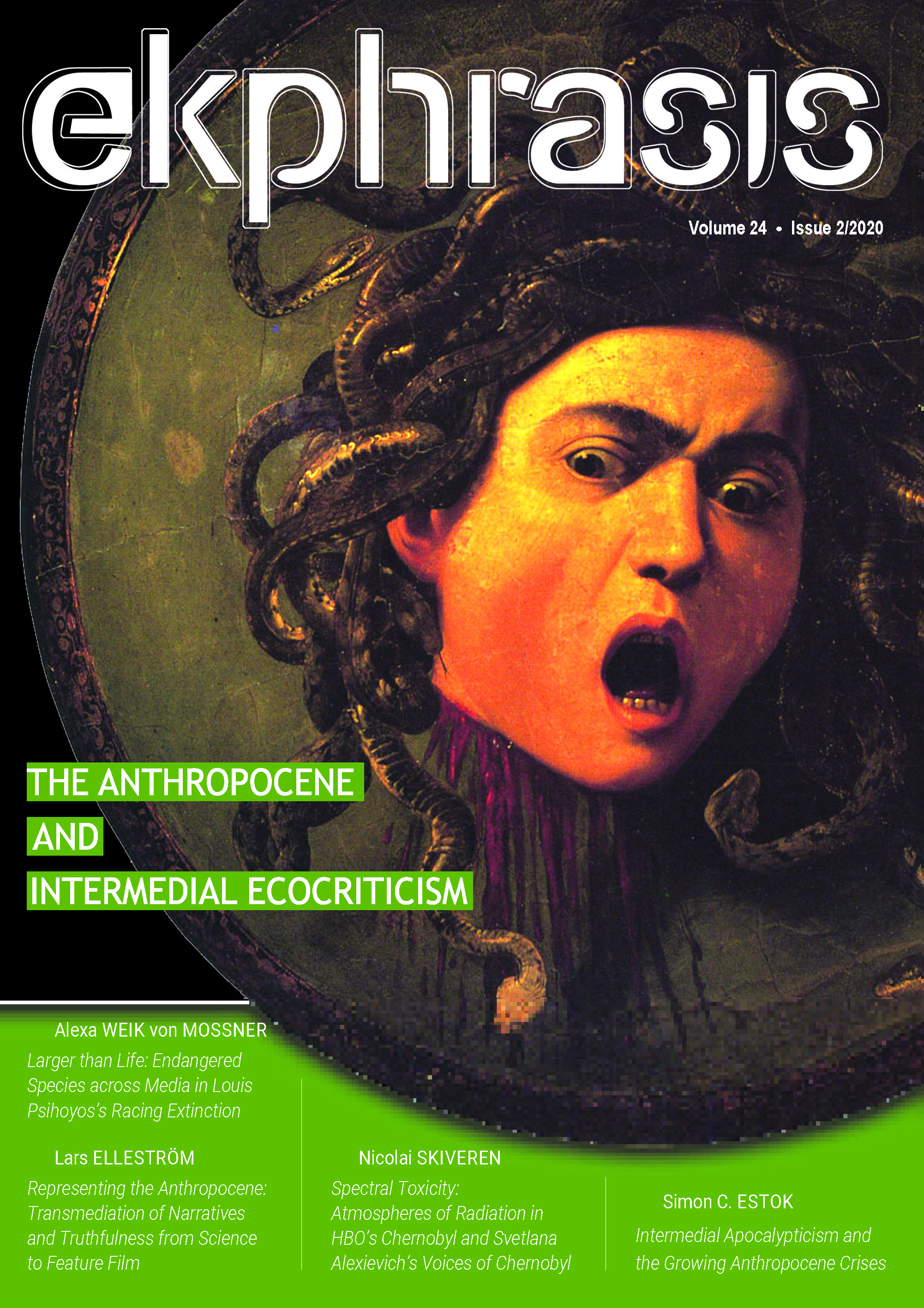Truth Written in Verse: Transmediations of Scientific Discourse in Swedish Ecopoetry
Truth Written in Verse: Transmediations of Scientific Discourse in Swedish Ecopoetry
Author(s): Emma TornborgSubject(s): Language and Literature Studies, Media studies, Studies of Literature, Communication studies, Theory of Communication
Published by: Universitatea Babeş-Bolyai, Facultatea de Teatru si Televiziune
Keywords: intermediality; transmediation; ecopoetry; truthfulness; truth claims;
Summary/Abstract: The article discusses transmediation of truth claims and truthfulness in ecopoetry and takes as example the poetry collection Permafrostens avtagande (The Declining of the Permafrost, 2007) by Swedish poet Åsa Maria Kraft. The aim of the article is twofold: First, to study how transmediation of scientific source material (which in this context includes all kinds of media that represent a scientific content in a formal matter: newspaper articles, scientific reports, documentaries etc.) affects the perceived and real truthfulness of a poem. Second, to discuss what ecopoetry gains – both aesthetically and in its perceived truthfulness and urgency – by transmediating content and/or form from scientific source media. Truth claims are not identical with truthfulness. Subjective truth claims in literature have to do with conveying a sense of sincerity and authenticity: we believe that the represented thoughts and emotions have actually been experienced. As I have stated elsewhere (Tornborg 2020), I regard objective truth claims in literature as being either something that we “by means of experience and habit” ascribe to the text or “claims made in the text, in various ways, implicit or explicit, of being truthful about external conditions” (9).A media product can transmediate a specific type of scientific jargon without transmediating a scientific content, and thus create what Gunn Enli (2015) calls “authenticity illusions” (1), but not real truthfulness. Thus, a text can fool us, and since no text can guarantee its own truthfulness, I believe that the only way to prove it is to include external references that in turn can be validated. This line of thought should be put in relation to the Heideggerian way of regarding poetic truth: as a kind of secular revelation (Roger Scruton 2015, 149). In this tradition of thinking, poetic truth is something different compared to what we usually mean by the word. Instead it denotes a deeper understanding of the essence of things. Transmediations of representations of scientific knowledge affect poetry both aesthetically and in terms or truthfulness. The article uses intermedial theory to disentangle the media relations in play in Kraft’s book, as well as to shed light over the issue of real truthfulness in poetry, with the purpose of better understanding the ecopoetic usage of science.
Journal: Ekphrasis. Images, Cinema, Theory, Media
- Issue Year: 24/2020
- Issue No: 2
- Page Range: 124-143
- Page Count: 20
- Language: English

